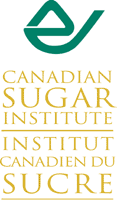
Find Experts & Sources
Media Directory
Media Releases
Sources Bookshelf
Sources Newsstand
Connexions Radical Digressions Sources HotLink Sources Select Resources Twitter Download PDFs Contact
Media Resources
Releases Subject Index Releases List Submit a news release or Calendar event Include yourself in SOURCESMedia Directory
Media Releases
Sources Bookshelf
Sources Newsstand
Connexions Radical Digressions Sources HotLink Sources Select Resources Twitter Download PDFs Contact
Media Releases from members of Sources.
To submit a news release, use this form.
To submit a news release, use this form.

Canadian Sugar Institute comments on Statistics Canada Health Report
September 21, 2011
September 21, 2011-Today Statistics Canada released the health report: Sugar consumption among Canadians of all ages. The report describes Canadian intakes of total sugars (naturally occurring and added) based on nutrition information collected as part of the 2004 Canadian Community Health Survey (CCHS).Overall consumption of sugars from all foods is a moderate 21% of total energy and well within dietary guidelines for carbohydrate. The report shows that sugars are consumed in a wide variety of foods, contributing carbohydrate and energy and that no individual food contributes an excessive amount of sugars.
The Canadian Sugar Institute (CSI) is pleased to see this data because it will help dispel considerable misinformation regarding Canadian consumption patterns. The report shows that most sugars are consumed as part of the four food groups of Canada’s Food Guide and only 1/3 of the calories from total sugars come from “other foods”. The sugars in those other foods accounts for a very moderate 7% of total energy.
“The report shows Canadians’ total sugars consumption is moderate and within the 45-65% of energy that is recommended for carbohydrates”, said Sandra Marsden, CSI President and registered dietitian. The report summarizes intakes of all sugars, which, along with starch and fibre, are carbohydrates. Whether naturally occurring or added, all sugars are the same to the body.
“Although added sugars are not analyzed, the report suggests that about half of the energy from total sugars is coming from added sugars, which is consistent with other estimates”, said Dr. Tristin Brisbois, Manager of Nutrition and Scientific Affairs with the Institute. Total sugars were reported to be 21% of total energy; added sugars can be estimated to contribute approximately 10% of total energy, which is well below Health Canada’s suggested maximum of 25% of energy intake.
The data also shows that people with diabetes consume 17% of their total daily calories from naturally occurring and added sugars which is less than the 21% for the general population. The sugars in “other foods” account for 3.5% of their total daily energy intake, much below the general population and well below recommendations for added sugars for people with diabetes.
This report is an important publication as it shows Canadian consumption levels - often US food intake data is used to describe Canadian eating habits. “It is important to remember that consumption patterns in Canada are not the same as in the US”, added Ms. Marsden
-30-
The Canadian Sugar Institute (CSI) is the national, non-profit association of Canada’s sugar manufacturers. CSI maintains a Nutrition Information Service managed by Registered Dietitians and research scientists. These qualified nutrition professionals maintain a comprehensive database of the latest research articles and technical information on carbohydrates, sugars and health. This service is also guided by a Scientific Advisory Council, a group of respected nutrition researchers from across Canada, to ensure an accurate interpretation of the scientific literature.
Media contact:
Laura Fracassi, Sussex Strategy Group
lfracassi@sussex-strategy.com
For more information contact:
Dr. Tristin Brisbois
Manager, Nutrition and Scientific Affairs
Canadian Sugar Institute
Phone: 416.368.8091
Website: www.sugar.ca/english/
Click here to view our Sources Listing:
Canadian Sugar Institute
Topics:
- Agriculture/Food
- Agriculture/Food Policy
- Agriculture/Trade Policy
- Children/Health
- Commodities Data
- Consumer Affairs/Relations
- Dental Health
- Diets/Dieting
- Export Trade
- Food Industry Associations
- Food Labelling & Advertising
- Food Processing
- Food Products Distribution
- Health Education
- Health Information
- International Trade
- Juices & Drinks
- Lobbying/Lobby Groups
- Manufacturers Associations
- Natural Food Products
- Nutrition
- Nutritional Research
- Public Health
- Public Speakers
- Publications/Health
- Sugar
- Sweeteners
- Tariffs & Quotas
- Trade
| Information and Media Resources from Sources | |||||||||
| Main News Release page | Media releases from clients of the Sources media relations service. | ||||||||
| Sources Calendar | Check out newsworthy events from across Canada. | ||||||||
| Sources Directory | Search the Sources directory of experts, contacts and media spokespersons. Find how to include yourself in Sources. | ||||||||
| Publish your news releases | Sources can help you distribute your media releases | ||||||||
| Media Names & Numbers | Directory of Canada's print and broadcast media. | ||||||||
| Parliamentary Names & Numbers | Full contact information for government, political parties, lobbyists, and embassies. | ||||||||
